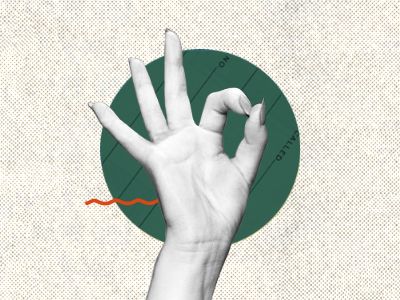
Welcome to Day 3 of the Ramzan Series 2020. We are in the Hijri 1441 of the Islamic calendar.
Surah Fateha is the opening surah of our salah and we recite it five times a day. But do you know that it is also a declaration of loyalty towards Allah?
In ayat number 5 of Surah Fateha, we make a pledge to Allah:
Iyyaaka na’abudu wa iyyaaka nasta’een
“You alone do we worship, and You alone do we ask for help.”
With this ayat, we pledge in front of Allah that we worship Him and Him alone, and we ask no one for help other than Him.
The first part of this ayat paves the way for us to be firm in the second. Let us see how.
When we worship Allah alone, it means we make no partners with Him. Our worship is exclusively for Him. Whereas, if we make partners with Him, or when we think someone can be like Allah in some way, we commit shirk (May Allah save us from shirk!). But shirk takes many sinister forms. One needs a very critical and watchful eye on oneself to keep in check that they do not commit any form of shirk.
Tawhid is the primary pillar of faith. It has various aspects. In the same way Shirk also consists of different types:
1) Tawhid and Shirk with regards to the Essence of Allah (S.w.T.) “Shirk fi’zaat”
2) Tawhid and Shirk in the Attributes of Allah (S.w.T.) “Shirk fil sifaat”
3) Tawhid and Shirk in actions
Shirk in actions means to not follow the commands of Allah even though we state verbally that we take Him as our Master and Lord. Tawhid in action would mean that our actions will give evidence of our emaan also. To prove your emaan by your actions is not an easy task, yet, having emaan in your heart alone will not be enough. The Quran mentions again and again “O you who have believed and have done righteous deeds…” This shows the great importance of doing saaleh aamaal in addition to having emaan in the heart.
To avoid shirk fi’zaat means that we keep our acts of worship exclusively for Allah. As Muslims, it is easy for us to avoid shirk fi’zaat by, for example, making sure our salah is for Allah alone and there is no intent of display of any sort, or making sure our Ramzan fasts, our zakaat, our sadqaat, everything is for Allah.
But are we guilty of shirk fil sifaat? In other words, do we make partners in the attributes of Allah? This is where it gets tricky.
How many times have you heard someone say the following:
“If it weren’t for them, we would not have been relieved of our problem…”
“That doctor was amazing, it was because of him that my father is healthy now…”
“I was blessed with a child after so many years only because of that Babe Jee’s blessing…”
“Thanks to my boss, my contract got extended…”
“Take me to that Baba Jee’s mazaar, I need to go and fulfill my ‘mannat’ else these blessings will be taken away from me…”
“Please have this plate of rice, it’s on the name of so and so imaam…”
This and so so many other things like this. One may argue that the intent is not that of shirk but we offer our respects by acknowledging these people. The following verse of the Holy Qur’an asserts:
“Surely Allah does not forgive that anything should be associated with him, and forgives what is besides that to whomsoever He pleases, and whoever associates anything with Allah, he devises indeed a great sin.” (Surah an-Nisā’ 4:48)
When our faith in the ultimate Oneness of Allah becomes firm, and when our hearts and our actions exhibit our emaan, we also become firm in the belief that no one can help us in anything except Allah. And hence, the second part of Surah Fateha, ayat number 5: “and it is only You we ask for help.”
While the month of Ramzan lasts, let us reflect on this ayat daily so that it becomes a habit for us to keep this ayat in our minds. Tawhid and shirk is a decision we consciously need to make every single day. Some days it will be easy while some days will be hard. Keep making dua that Allah helps us stay focused and on the right path.
May Allah make us of those who uphold the pledge of loyalty to Allah. May Allah help us remember this promise and honor it. May Allah save us from hardness of tests meant to evaluate our emaan. May we find Allah in all our journeys and may all our journeys lead back to Him.
Ameen, sum Ameen.
—
اس رمضان المبارک کے تیسرے روز میں خوش آمدید۔
اياك نعبد
سورہ الفاتحہ قرآن کی پہلی سورہ ہے اور ہم اسے ہر روز کئی مرتبہ پڑھتے ہیں۔ لیکن کیا آپ کو معلوم ہے کہ یہ اللہ کے ساتھ وفاداری کا ایک عہد نامہ بھی ہے؟
سورہ الفاتحہ کی پانچویں آیت میں ہم اللہ سے ایک عہد کرتے ہیں:
اياك نعبد و اياك نستعين
ہم تیری ہی عبادت کرتے ہیں اور تجھ سے ہی مدد مانگتے ہیں
یہاں ہم اللہ سے یہ عہد کرتے ہیں کہ ہم تیری اور صرف تیری عبادت کرتے ہیں اور صرف اور صرف تیری مدد کے طلبگار ہیں۔
اس آیت کے پہلے حصے پر مضبوط ایمان ہمیں خود بخود دوسرے حصے پر مضبوطی کے راستے پر گامزن کر دیتا ہے۔
صرف اور صرف اللہ کی عبادت کا مطلب یہ ہے کہ ہم اس کے ساتھ کسی کو شریک نہیں ٹھہرا رہے۔ ہماری ساری عبادات صرف اور صرف اللہ ہی کے لئے ہیں۔ اللہ کے ساتھ کسی کو شریک ٹھہرانا، خواہ کسی معمولی ترین حد تک ہی کیوں نہ ہو، شرک کی تعریف میں داخل ہو جاتا ہے۔ اور یاد رہے کہ شرک کی کئی شکلیں اور اقسام ہیں۔ اس سے بچنے کے لئے اپنے الفاظ، نیت اور اپنے اعمال کے متعلق بہت احتیاط برتنی چاہئے۔
1۔ توحید اور شرک فی الاعمال
2۔ توحید اور شرک فی الذات (اللہ کی ذات میں شرک)
3۔ توحید اور شرک فی الصفات (اللہ کی صفات میں شرک)
شرک فی الاعمال کا مطلب ہے اللہ کے احکامات پر عمل نہ کرنا، خواہ زبان سے اللہ کی وحدانیت اور ربوبیت کا اقرار ہی کیوں نہ کیا جائے۔ جبکہ توحید فی الاعمال کا مطلب ہے اپنے ایمان پر نہ صرف دل سے قائم رہنا بلکہ اس کا عملی ثبوت بھی پیش کرنا۔ ایمان پر مضبوطی کے ساتھ قائم رہنا اور اس کا عملی مظاہرہ کرنا آسان نہیں ہوتا۔ لیکن اس کے بغیر کوئی چارہ بھی نہیں۔ قرآن میں اللہ نے متعدد مرتبہ ایمان والوں کو “اے ایمان والو اور نیک اعمال کرنے والو” کہہ کر مخاطب کیا ہے۔ یہ ایمان رکھنے کے ساتھ ساتھ “صالح” اعمال کرنے کی اہمیت کو ظاہر کرتا ہے۔
شرک فی الذات سے اجتناب کا مطلب ہے کہ ہم اپنی تمام عبادات بالخصوص اللہ ہی کے لئے کریں۔ بحیثیت مسلمان، شرک فی الذات سے بچنے کا سادہ ترین طریقہ یہی ہو سکتا ہے کہ ہم اپنی عملی عبادات، نماز، روزہ، زکوت، صدقات وغیرہ کو پورے خلوص کے ساتھ، دکھاوے اور ریاکاری سے بچنے کی پوری کوشش کرتے ہوئے اللہ کے لئے ہی وقف کر دیں۔
لیکن کیا ہم شرک فی الصفات کے مرتکب تو نہیں ہوتے؟ بالفاظ دیگرے، کہیں ایسا تو نہیں کہ ہم جانے انجانے اللہ کی صفات میں کسی اور کو شریک ٹھہرا دیتے ہوں؟
ہمیں اکثر اس طرح کے فقرے سننے کا اتفاق ہوتا ہے:
“اگر وہ نہ ہوتا تو ہمارا مسلہ کبھی بھی حل نہیں ہونا تھا”
یا
“کمال کر دیا ڈاکٹر صاحب نے، آج ان کی وجہ سے میرے والد زندہ ہیں”
یا
“بابا جی کی وجہ سے ہم صاحب اولاد ہیں”
یا
“میرے باس کی مہربانی ہے جو ابھی تک نوکری بچی ہوئی ہے”
یہ اور اس جیسے کئی اور جملے ہیں جب ہماری نیت اگرچہ شرک کی نہ بھی ہو، لیکن ہم مختلف لوگوں بہت سی نعمتوں یا کامیابیوں کا زمہ دار مان لیتے ہیں۔
اللہ تعالی فرماتے ہیں:
“بےشک اللہ اسے نہیں بخشتا کہ اس کے ساتھ شرک کیا جائے، اور شرک سے نیچے جو کچھ ہے، جسے چاہے معاف فرما دیتا ہے۔ اور جس نے اللہ کا شریک ٹھہرایا، اس نے بڑا گناہ باندھا۔”
جب ہمارا ایمان اللہ کی وحدانیت پر کامل اور مضبوط ہو جاتا ہے، اور جب ہمارا دل اور ہمارے اعمال، دونوں ہمارے ایمان کی مضبوطی کو ظاہر کرنے لگتے ہیں، تب ہمارا یہ عقیدہ بھی مضبوط ہو جاتا ہے کہ اللہ کے سوا کوئی ہماری مدد نہیں کر سکتا۔ اور یہی وہ عہد ہے جو ہم سورہ فاتحہ کی آیت 5 کے دوسرے حصے میں کرتے ہیں، یعنی “و اياك نستعين”
ہمیں چاہئے کہ اس ماہ رمضان میں کوشش کر کے اس عہد پر خصوصی توجہ دیں، اور اس کو اپنی عادت بنانے کی کوشش کریں کیونکہ توحید اور شرک میں سے کسی ایک کو اختیار کرنے کا فیصلہ ہمیں ہر روز، کئی مقامات پر کرنا پڑتا ہے۔ اس کے لئے جس طرح کا مضبوط ایمان ہمیں چاہئے، اللہ ہمیں اس کی توفیق عطا فرمائے۔
اللہ ہمیں اپنے عہد کو یاد رکھنے کی اور اس پر عمل کرنے کی توفیق عطا فرمائے۔ اللہ ہمارے ہر سفر میں ہمارا حامی ہو اور ہمارا ہر سفر ہمیں اللہ کی جانب لے جائے۔
آمین




